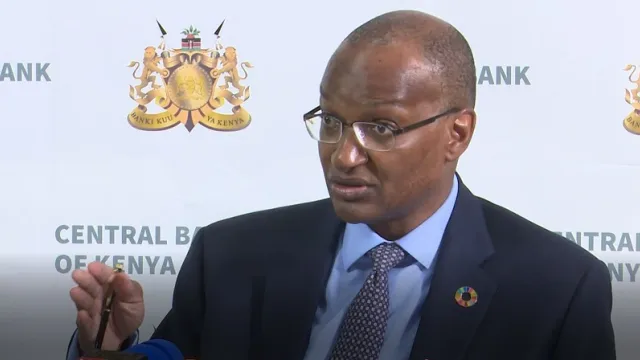Kenya raises interest rates – for the first time since 2015 - to tame inflation

Kenya raises interest rates – for the first time since 2015 - to tame inflation
The Central Bank of Kenya (CBK) moved to tamp down soaring inflation in the country on Monday, announcing raise in key interest rate, for the first time in seven years.
The CBK's benchmark interest rate was raised by 0.5 percentage points to a target rate of 7.5 percent, up from 7 percent.
The hike in benchmark lending rate is the first since 2015 and follows a rise in the rate of inflation in the country in recent months largely induced by runaway food and fuel prices.
While holding the key rate at 7 percent for 13 consecutive announcements, the CBK has been brushing aside inflation concerns but events in recent months must have pushed analysts to think otherwise.
According to the Kenya Bureau of Statistics, the country's measure of the change in the cost of living hit 6.47 percent in April, up from 5.56 percent in March as soring food and fuel prices pushed consumers on edge.
Fuel inflation increased the most to 8.5 percent from 5.8 percent on account of high global prices which have been unstable since the outbreak of the Russia - Ukraine war in late February.
The global economic outlook has become more uncertain, reflecting the impact of the ongoing Russia-Ukraine conflict, uncertainty about the required policy measures... effects of Covid-19 containment measures in China, and persistent supply chain disruptions, CBK's Monetary Policy Committee (MPC) noted.
Read also: Family Bank readies Sh1.9 billion post-Covid recovery lending to SMEs, schools
“The Committee noted the elevated risks to the inflation outlook due to increased global commodity prices and supply chain disruptions, and concluded that there was scope for a tightening of the monetary policy in order to further anchor inflation expectations,” Monetary Policy Committee chairman and CBK Governor, Dr Patrick Njoroge, said.
The committee will closely monitor the impact of the policy measures, as well as developments in the global and domestic economy, and stands ready to take additional measures, Dr Njoroge added.
Economic Survey 2022 shows that Kenya's economy rebounded in 2021 following the easing of Covid-19 curbs, with the country posting 7.5 percent growth in Gross Domestic Product (GDP) from a 0.3 percent contraction in 2020.
The growth was largely driven by a rebound in manufacturing, wholesale, retail, education, accommodation, and food service, real estate, transport as well as finance and insurance sectors.
Kenya's exports in the 12 months to April have remained strong, growing by 11.1 percent with tea receipts up 1.3 percent, and manufactured goods 25.2 percent compared to a similar period in 2021.
At the moment, CBK foreign exchange reserves stand at US$8,179 million or 4.86 months of import cover enough to cushion against short-term shocks in the currency markets, the CBK noted.



